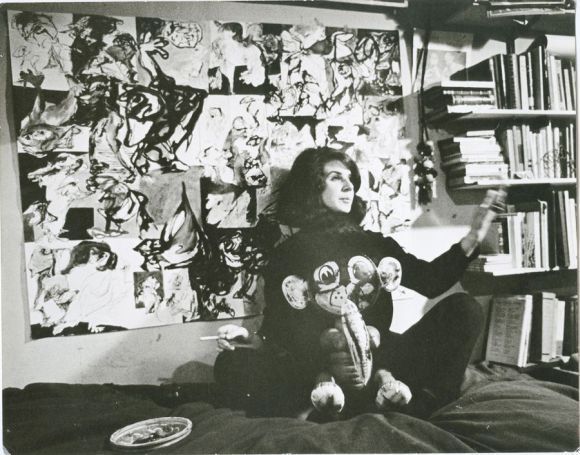Intervention
Interview & artist-guided tour: Jacqueline de Jong, Axel Heil

As a member of its Central Committee and editor of the Situationist Times, Jacqueline de Jong played a major role in the Situationist International. On the one hand, she was one of the few women to give voice to the network of only about 70 members. On the other hand, the Situationist International was shaped by the conflicting views and interests of the individual groups that formed the network. Throughout the time of her membership, Jacqueline de Jong resisted being co-opted by any of these factions. In 1968 she marched with Parisian students, printing posters in support of the movement at her studio in the 11th arrondissement. Fifty years after the student unrest, in which the Situationist International was substantially involved, de Jong, together with Axel Heil, critically looks back both at that time and at today’s attempts at its canonization.
Jacqueline de Jong joined the Situationist International in 1960. She was the editor of the Situationist Times magazine, the group’s primary medium of communication, and focused on painting. Following her work in the context of the Situationist International, de Jong engaged in various areas of the arts, such as exhibitions and art fairs as well as the issue of copyrights. The Weyland de Jong Foundation, founded in 2009 together with her husband, supports avant-garde artists aged 50 and over in their work. Jacqueline de Jong’s artistic works have been shown in numerous solo and group exhibitions, most recently in 2018 at the Frans Hals Museum, Haarlem, and at Les Abbatoirs, Toulouse. In 2019, the Stedelijk Museum, Amsterdam, dedicates her a solo exhibition.